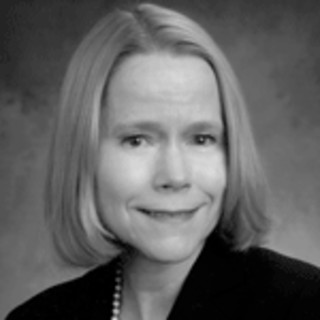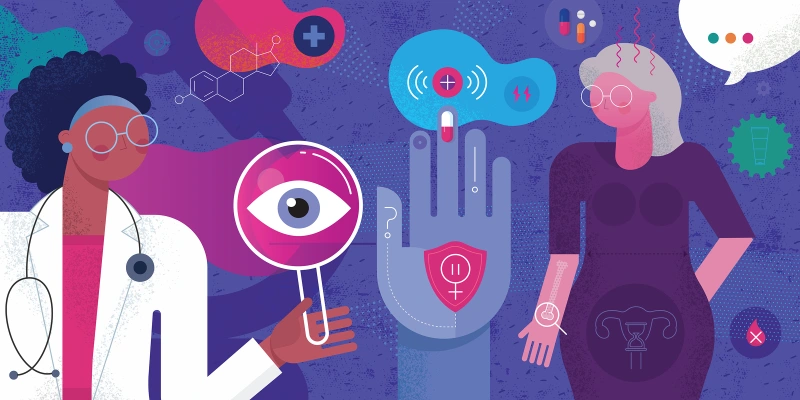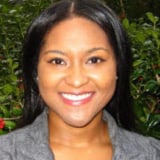The 125th annual meeting of the American Academy of Otolaryngology-Head and Neck Surgery kicked off on the evening of Oct. 2 with an open-air reception in the X-Box Plaza in Los Angeles. Enthusiasm was high, as the organization had not convened live for more than 20 months. COVID-19 vaccination was mandatory for the 2,000 people who were physically present. Nearly the same amount of people attended virtually, utilizing live streams and on-demand recordings.
The opening ceremony on Sunday morning began with a clever video on the big screen, showing AAO-HNSF President Dr. Carol Bradford, Dean of The Ohio State University College of Medicine, at a desk, apparently broadcasting a welcome from her office. After a few seconds, the image became distorted, the audio crackled, and a text message claimed it was a technical difficulty. Then Dr. Bradford strolled onto the stage to thunderous applause.
The program of the 125th annual meeting laid the groundwork for four areas that the academy identified as pillars of its programs:
- Diversity, Equity, and Inclusion program
- Use of augmented and virtual reality in education
- Leadership development
- Wellness
Dr. Neha Sangwan presented the keynote address, “Self-Care in Healthcare,” a timely and relevant topic in light of the extreme stresses encountered by health care providers during this pandemic. Far more than a lecture, this interactive workshop pulled volunteers up on the stage to participate. Dr. Sangwan provided practical and powerful tools for the prevention and healing of burnout and stated that “Our training has taught us to sacrifice our well-being as a noble act in service to our patients. This can no longer be an either/or; it must be both. And as a powerful, smart group, we are very capable of collectively figuring out what it will take to both take care of ourselves and our patients.”
The wellness theme was echoed and amplified in other sessions, such as a panel moderated by Dr. Jo Shapiro of Harvard Medical Center: “Surgeon Well-Being: Physical, Sociological, and Emotional.” She stated that psychological safety in the workplace is the key driver of well-being. Renee Ostertag, a physical therapist, discussed the toll of mechanical, psychological, and social stressors on a surgeon’s body and how the pandemic has raised the stakes. She recommended tips for decompressing these pressures. Dr. David J. Brown, MD, associate dean at the University of Michigan, presented data supporting the wellness benefits of diversity.
Like all ill winds, the COVID-19 pandemic provided at least one collateral benefit: the expansion of virtual communication that enhances the worldwide sharing of information and experience. The AAO-HNSF Simulation Education and Humanitarian Efforts Committees collaborated in presenting a panel that asked the question, “Can Global Surgical Skills Training Be Done Remotely?” Like learning to drive a car, learning to operate cannot be learned from reading a book. Surgical training requires supervised hands-on training. Many of us who have taught in remote corners of the globe have been constrained from travel during the pandemic. Fortunately, imagination, cell phones, webcams—and even red peppers—can expand global skills training. Dr. Merry Sebelik, professor of otolaryngology-head and neck surgery at Emory University in Atlanta, Georgia, moderated the session and spoke on the use of virtual meetings set up to provide real-time validated assessments of performance. Dr. Kaalan E. Johnson demonstrated how low-cost simulation models are equally effective as expensive technology in training management of pediatric airway foreign bodies. Dr. Gregory J. Basura presented his experience in setting up temporal bone labs in low- to middle-resource countries. Dr. Christina Yang introduced that red pepper can be an inexpensive and valid trainer for endoscopic sinus surgery.
The next annual meeting will be in Philadelphia, Saturday, Sept. 10, 2022, through Wednesday, Sept. 14, 2022. Hopefully, COVID-19 will have retreated sufficiently to have greater in-person attendance from around the world. But virtual attendance will continue to grow, facilitating the spread of information and sharing of experience around the globe.
Dr. Woodson has no conflicts of interest to report.
Image: DrAfter123 / gettyimages






